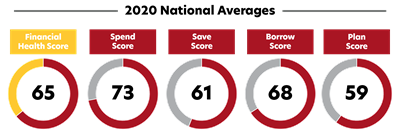Learn it, live it
Join us for our Money & Partnership: Financial Strategies for Shared Success webinars on Feb 4 & 26. Register now at ent.com/events or view more upcoming classes.
Stay informed with our educational e-newsletter!
Sign up nowLatest articles

Setting Meaningful Money Resolutions with Your Kids

5 Steps to Recover from Increased Holiday Spending

How Your Credit Union Deposits Strengthen Local Communities

Why Debt Consolidation Is About Psychology, Not Just Numbers

Financial Planning in 2026: A Fresh Start Guide

Common holiday scams unwrapped
Top financial course offerings
Money Mapping
Every journey begins with a single step — so start your quest for financial success here. Learn how to pinpoint your financial goals, and then explore budgeting and savings strategies that’ll help you reach your destination. Approx. 30 min.
Diving into Credit
Your credit score can have a sink-or-swim effect on your purchasing power. Take this deep dive into learning how your score is determined and why it’s important, and you’ll emerge with tips on how to use credit responsibly.
Navigating Financial Decisions
You make plans to ensure smooth sailing — but we all encounter financial storms along the way. Learn to adopt good money habits and how to navigate debt repayment so you can chart your course to financial empowerment. Approx. 30 min.
Featured calculators
View All
Financial Health Calculator: How Am I Doing Financially?

Mortgage proceeds: Home sale proceeds calculator

Auto loan calculator: Calculate a vehicle payment

Debt consolidation calculator

Home loan calculator: Mortgage loan calculator for buying a home

Rent vs buy calculator: Should I rent or buy a home?

HELOC Payment Calculator: Calculate Your Home Equity Line of Credit Payments
